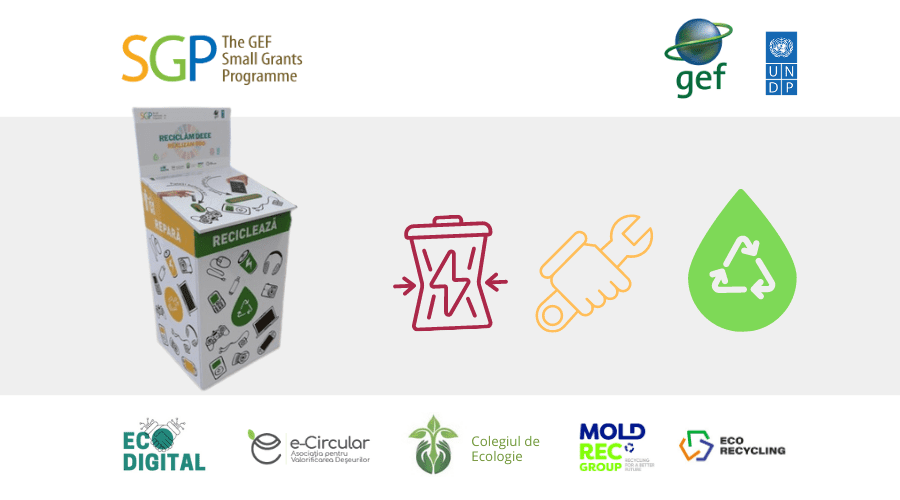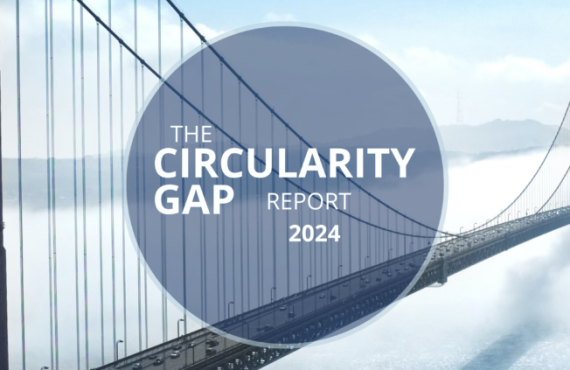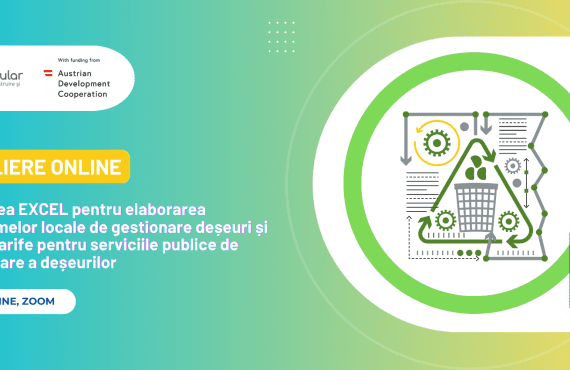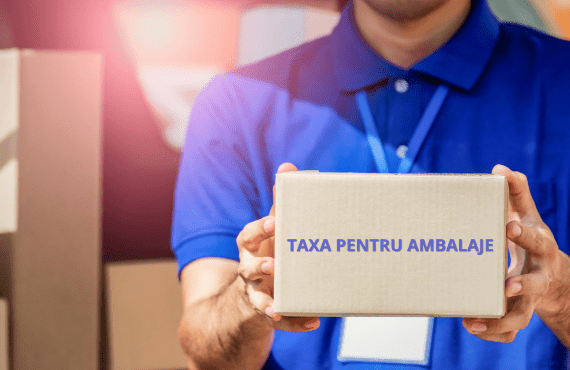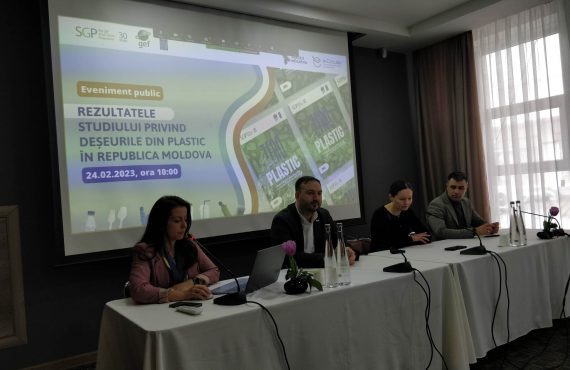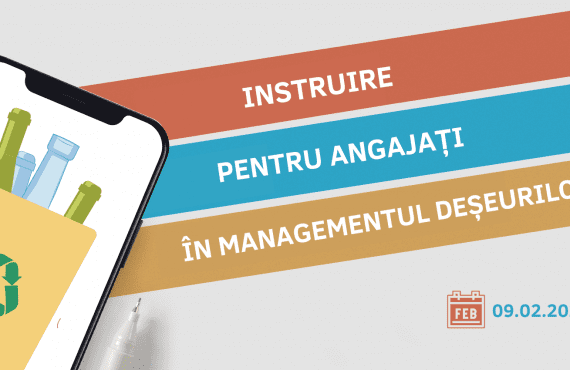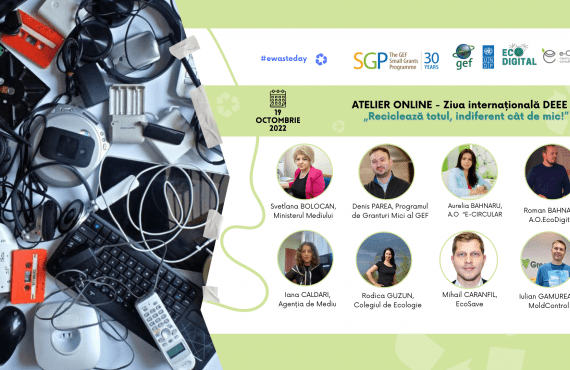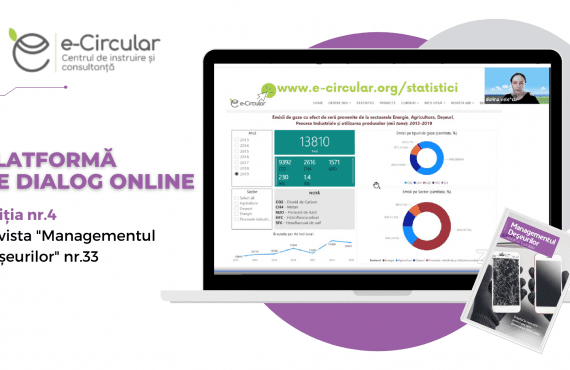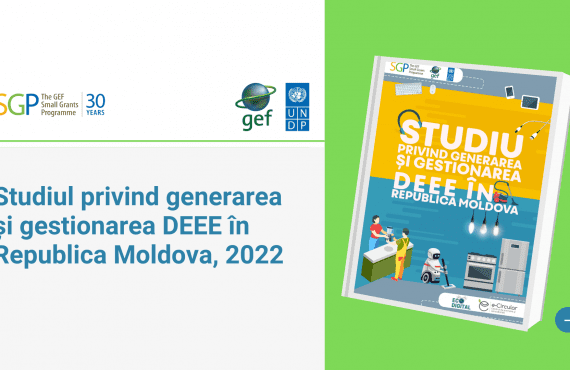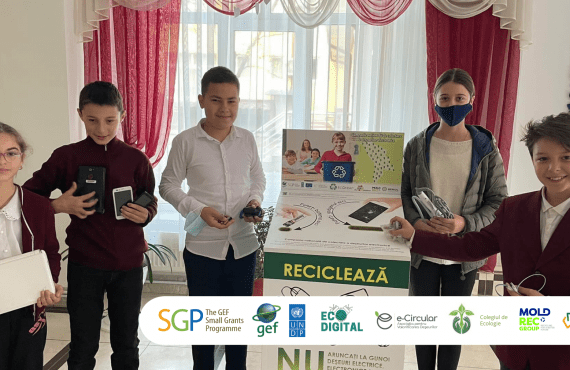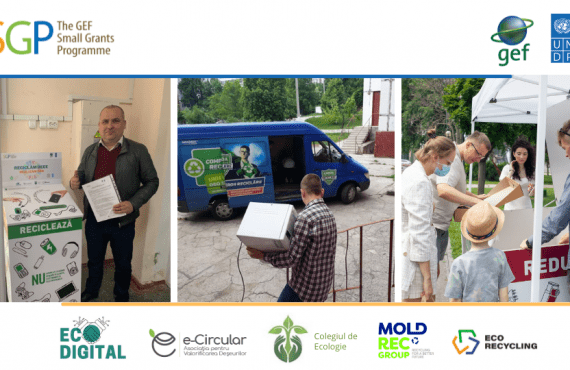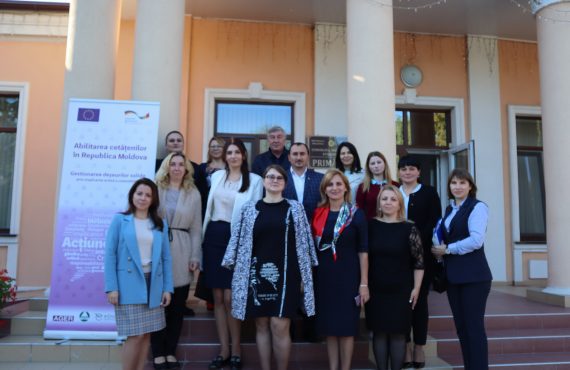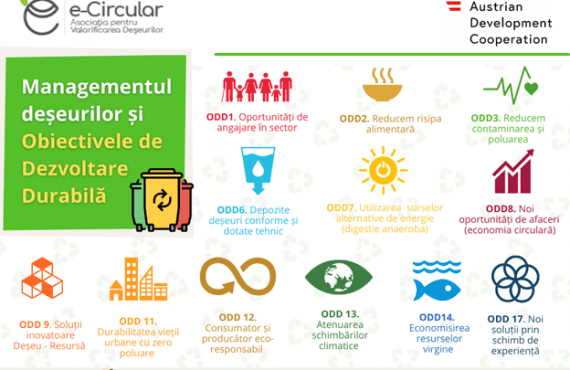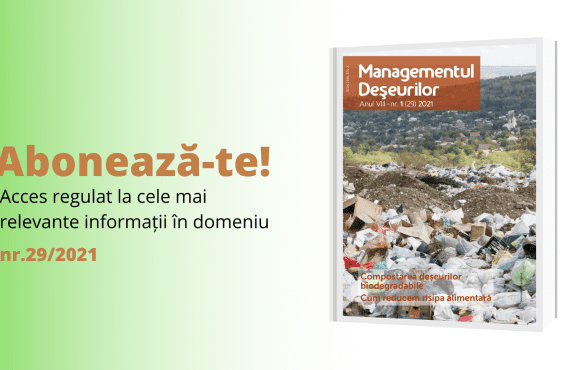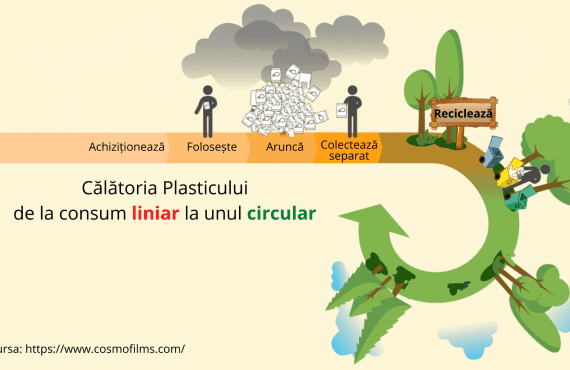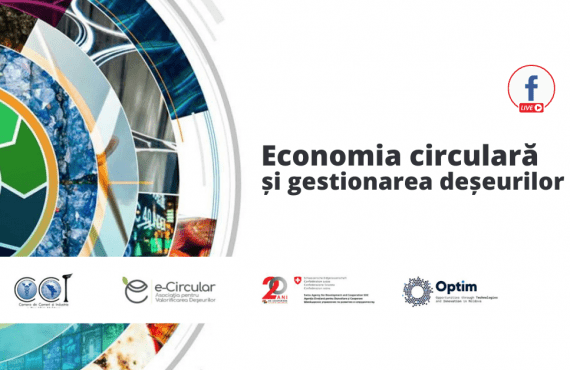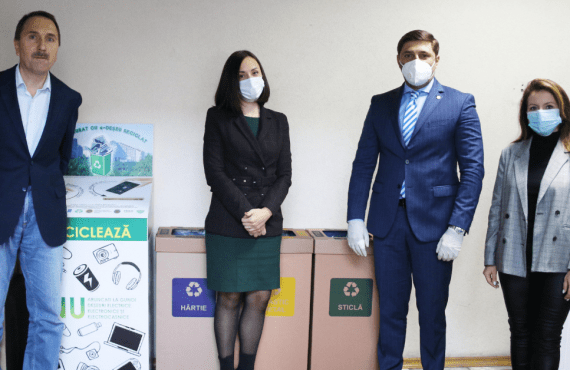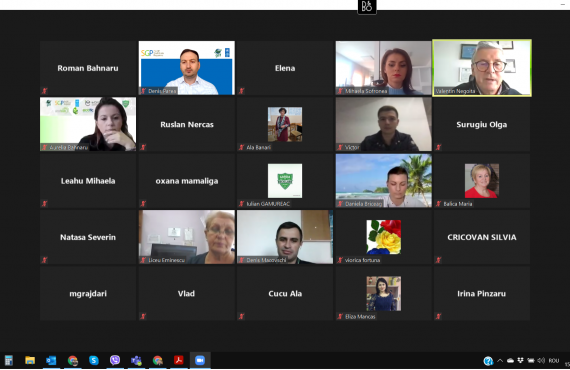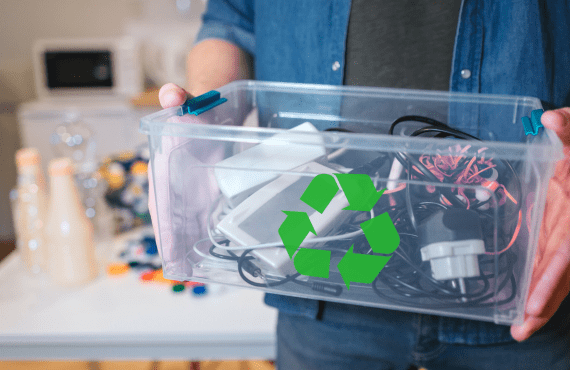number electrical and electronic equipment waste collection points will increase from 128 to 200, thanks to a new project dedicated to e-Waste management, which was launched today, March 18, 2021, on Global Recycling Day. The points will be set up in Chisinau and other localities in the country.
The "We recycle e-Waste, we achieve the Sustainable Development Goals" project is implemented by AO EcoDigital with the financial support of the GEF Small Grants Program, implemented by UNDP Moldova, in partnership with AO Association for Waste Valorification, the College of Ecology, MoldRec and EcoRecycling. The initiative was designed as a continuation of the "Clean city with recycled e-Waste" project, implemented in the period 2018-2020 by AO Association for Waste Recovery.
"Everything we use can become waste, but it is worse when electrical and electronic equipment becomes waste, because they contain dangerous materials and chemical elements, which have a negative impact on our body. Many do not realize that they are so dangerous", said Roman Bahnaru, president of AO EcoDigital and coordinator of the project.
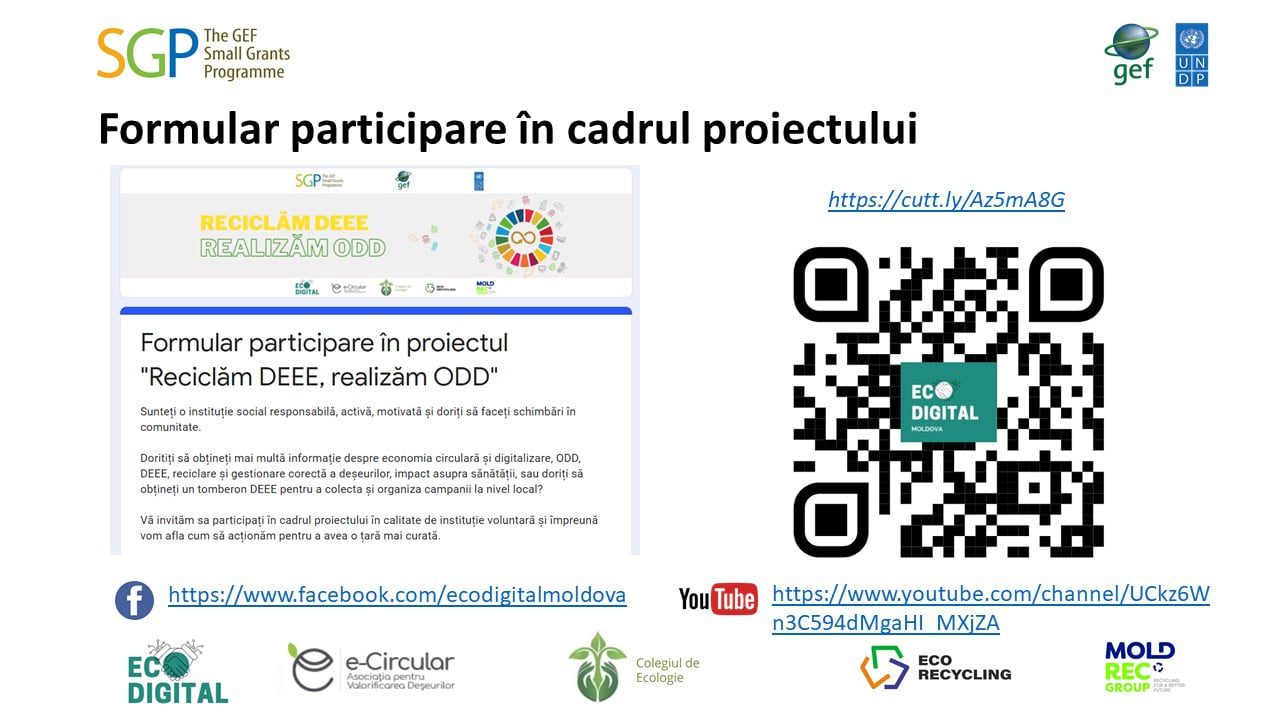
At the same time, the first laboratory class on electrical and electronic equipment waste will be set up within the College of Ecology, which will be equipped with various samples, which will allow the study and visualization in detail of the types of materials from which they are composed (plastic , metal, glass, electronic components, etc.). This will help promote the principle of repairing, which directly contributes to extending the life of equipment.
Annually in the Republic of Moldova, about 10 thousand tons of electrical and electronic equipment waste are generated, and according to "The study on the generation and management of e-waste in the municipality of Chisinau”, in the list of electrical and electronic equipment used are: mobile phones (91%), refrigerators (90%) and washing machines (85%) – in households, while legal entities make more intensive use of computers (93%), printers (81%) , mobile phones (74%), landline phones (69%) and air conditioners (67%). If the mobile phone is the equipment with the shortest period of use (on average 3 years), at the opposite pole is the fixed phone, which is used for more than a decade.
According to the same study, the biggest obstacles regarding the collection of e-Waste are insufficient information about collection and recycling and insufficient infrastructure for the collection of this waste. All taken together, further amplified in the long term by the consequences of the pandemic and the increase in the quantities of electrical and electronic equipment purchased in the last year, bring an enormous burden on the environment - if of course they are not managed sustainably.
During the implementation of the project "Clean city with recycled e-Waste" 2018-2020, it was possible to place 128 specialized dumpsters in the premises of 115 institutions from the private, public, academic and civil society sectors. In total, more than 70 thousand students were involved and 70 tons of e-Waste were collected.

